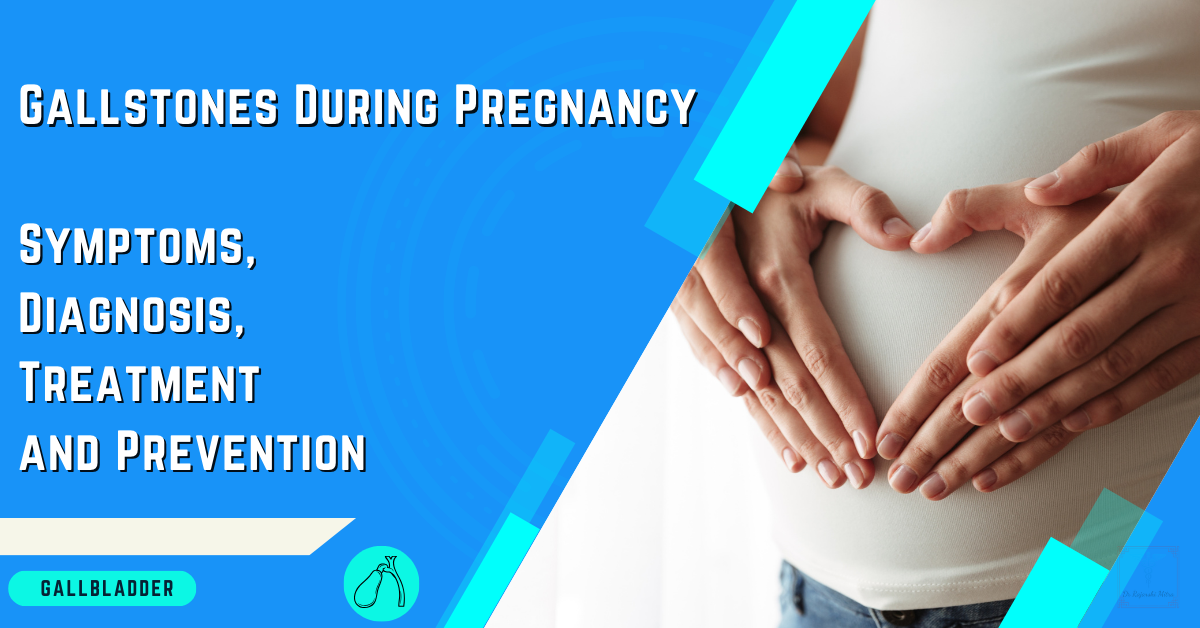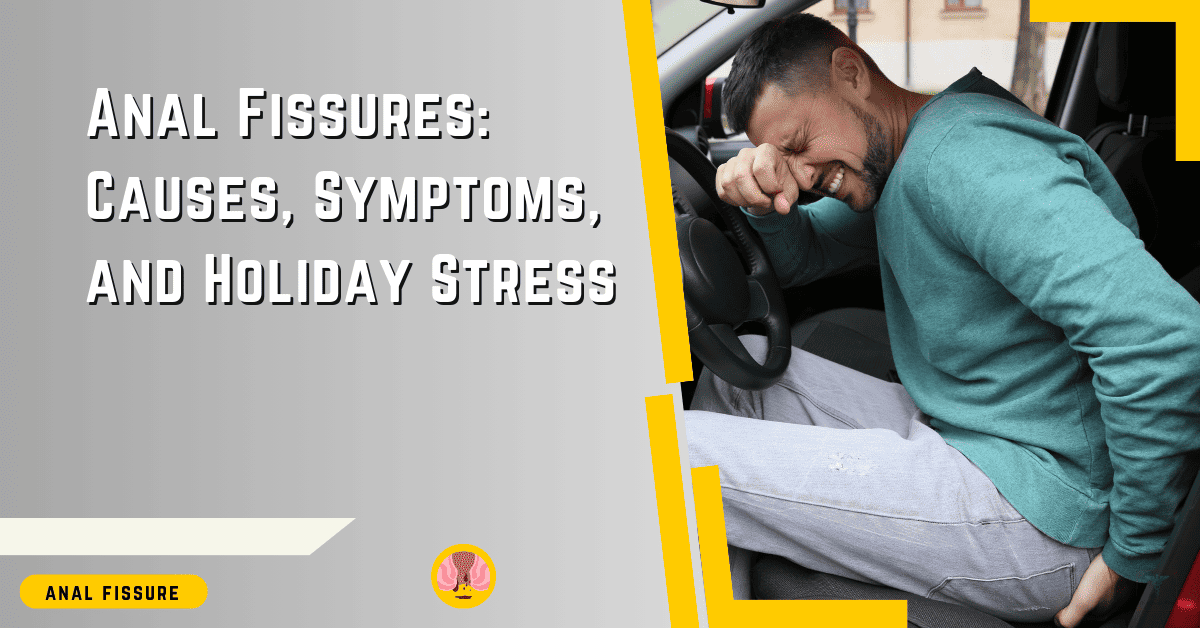Gallstones during pregnancy can be a source of concern, impacting your health and well-being. This condition, while not uncommon, requires careful management to ensure both your safety and that of your baby. With the right information and guidance, navigating this issue becomes less daunting.
We will explore all there is to know about gallstones during pregnancy – understanding their relationship with pregnancy, dealing effectively with symptoms, and considering appropriate treatment and preventative measures. By staying informed, you can make empowered decisions for your health during this pivotal time.
Gallstones During Pregnancy: Quick Facts To Know
- Recognizing the signs of gallstones early during pregnancy can help manage symptoms and prevent complications, emphasizing the importance of understanding your body’s signals.
- Pregnancy increases the risk of gallstones due to hormonal changes, making it crucial for expectant mothers to be aware of this risk and monitor their health accordingly.
- Complications from gallstones can impact both mother and baby, so it’s vital to discuss any concerns with your doctor immediately to ensure a safe pregnancy and delivery.
- Adopting a healthy diet and lifestyle can significantly reduce the risk of developing gallstones, highlighting the role of natural management strategies alongside medical advice.
- In some cases, medical or surgical intervention may be necessary to address gallstones during pregnancy; understanding these options can help expectant mothers make informed decisions about their care.
- Planning for future pregnancies includes considering the risk of recurrent gallstones, underscoring the importance of preventive measures and regular health check-ups.
Understanding Gallstones
Gallstones, rock-like particles formed from bile cholesterol and bilirubin, can induce severe pain if not managed effectively. Furthermore, these unassuming stones, ranging from the size of a sand grain to an apple, may block the bile ducts, causing potential complications.
Pregnancy and Gallstones – An Overview
Pregnancy triggers an array of hormonal changes which inadvertently increase a woman’s susceptibility to gallstones. Here, we explore the connection between gallstones and pregnancy.
Gallstones – An In-depth Look
To manage gallstones effectively during pregnancy, a clear understanding of gallstones, their causes, and prevalent symptoms is essential.
Complications During Pregnancy
Gallstones occur when bile components such as cholesterol, bilirubin, and bile salts crystallize and harden. This crystallization can lead to complications if gallstones block bile ducts. Some of the most common complications caused by gallstones during pregnancy are:
- Preterm LaborGallstones might increase your risk of preterm labor. This connection stems from the inflammation and discomfort gallstones can cause. It’s crucial to monitor any gallstone-related symptoms closely during pregnancy. Symptoms like severe abdominal pain should not be ignored. If you notice your symptoms getting worse, seek medical help immediately. Early intervention can prevent complications and protect both your health and your baby’s.
- CholecystitisCholecystitis is an inflammation of the gallbladder, often due to blocked bile flow by gallstones. Key signs include fever and intense abdominal pain. These symptoms require immediate attention to avoid further health issues. Delaying treatment for cholecystitis can lead to more serious complications, making prompt medical care essential.
- PancreatitisPancreatitis is another severe complication that can arise from gallstones. It causes severe abdominal pain, nausea, and vomiting. If not treated quickly, this condition poses significant risks to both mother and child. The urgency of addressing pancreatitis cannot be overstated; it requires immediate medical intervention to safeguard maternal and fetal well-being.
Root Causes and Risk factors of Gallstones
Gallbladder risk factors such as hormonal fluctuations during pregnancy can lead to gallstone formation. These changes increase cholesterol levels in your bile, a fluid made by the liver. High cholesterol in bile often results in gallstones.
Your gallbladder movement slows down when you’re pregnant, making it harder for the gallbladder to empty properly. Other risk factors are:
- Weight GainGaining too much weight during pregnancy puts you at a higher risk for developing gallstones. It’s crucial to manage your weight gain within recommended guidelines to minimize this risk. After giving birth, rapid weight loss can also trigger gallstone formation due to the sudden changes in your body’s fat metabolism.
- Diet ChangesAdopting a diet low in fat and high in fiber during pregnancy can lower your risk of developing gallstones. Incorporate fruits, vegetables, and whole grains into your daily meals. These foods help prevent cholesterol from crystallizing into gallstones. Conversely, diets high in refined sugars and fats can increase your risk of gallstones.
Recognizable Gallstone Symptoms during Pregnancy
Gallstones are often asymptomatic. However, a blocked bile duct can cause acute abdominal pain, vomiting, dark urine, lighten-colored stools, or jaundice. Some common symptoms include:
- Pain SignsYou might feel a sharp pain in the upper right part of your abdomen. This pain can spread to your back or shoulder. Often, it gets worse after eating fatty foods. It’s important to recognize these signs early.
- Digestive IssuesGallstones can cause indigestion and bloating. You may also experience nausea and vomiting. These symptoms happen because gallstones disrupt normal digestion processes.

Pregnancy and Gallstones – Effective Diagnosis
The development of gallstones can be significantly influenced by pregnancy-induced bodily changes. Most effective diagnosis methods are:
- UltrasoundAn ultrasound is the best way to diagnose gallstones during pregnancy. It’s safe and noninvasive, making it ideal for expectant mothers. The ultrasound can clearly show the size and location of the gallstones.
- Blood testsBlood tests help check for infection or signs of bile duct blockage. Liver function tests can reveal if there are complications due to gallstones. Monitoring bilirubin levels is also crucial.
Other Diagnostic Approaches
Additional tests, such as a Gallbladder radionuclide scan (HIDA scan), can be considered safe and necessary.
Why Pregnancy Triggers Gallstone Formation?
Cholesterol concentration in the bile increases during pregnancy due to hormonal changes, thereby feeding the formation of gallstones. Moreover, increased progesterone levels can impede gallbladder contractions, leading to ineffective gallbladder emptying.
Hormonal changes
During pregnancy, your body undergoes significant hormonal changes. One key change is the increase in estrogen levels. This increase can lead to the formation of gallstones by causing more cholesterol to be present in the bile. The composition of bile changes, becoming saturated with cholesterol, which can crystallize and form stones.
Progesterone, another hormone that increases during pregnancy, slows down the movement or contractility of the gallbladder. This slower movement means bile stays longer in the gallbladder, increasing the risk of gallstone formation.
Lifestyle Influencers During Pregnancy
Pregnancy dietary habits, especially consumption of high-fat and low-fiber diets, can aid gallstone development. Moreover, a sedentary lifestyle during pregnancy also has a role to play.
Treatment Avenues For Managing Gallstones Naturally
The approach to treatment largely depends on the severity of the gallstones and the risk to both the mother and child. However, in some cases, it can be managed with natural remedies:
- Fiber-Rich FoodsIncorporating fiber-rich foods into your diet is a key strategy. Examples include legumes, oats, fruits, and vegetables. These foods help regulate bowel movements, which can prevent the buildup of substances that lead to gallstones. Fiber also plays a role in lowering the cholesterol levels in bile, making it less likely for stones to form. Aim to include these nutritious options in your daily meals to support your digestive health.
- Healthy FatsUnderstanding the difference between healthy unsaturated fats and harmful saturated fats is crucial. Avocados, nuts, and olive oil are excellent sources of beneficial fats. These healthy fats aid in maintaining proper gallbladder function and can prevent the formation of gallstones by ensuring bile remains fluid and flows freely. Incorporate these into your diet while avoiding high-fat and fried foods that stress the gallbladder.
- Hydration importanceStaying adequately hydrated is essential for preventing gallstones during pregnancy. You should drink at least 8-10 glasses of water each day. Proper hydration helps maintain the consistency and flow of bile, reducing the risk of gallstone formation. This simple practice not only supports your overall health but also specifically aids in managing potential complications from gallstones discussed earlier.
Non-Surgical Treatment Options
For mild symptoms, close medical monitoring with dietary alterations and pain management interventions are usually sufficient. However, for advanced cases, some common non-surgical treatment options are:
- Medication optionsUrsodeoxycholic acid is a medication known for its ability to dissolve cholesterol gallstones. It works by reducing the cholesterol content in bile, which in turn helps dissolve the stones. However, its use during pregnancy is limited. This limitation stems from the lack of extensive research on its safety for pregnant women and their fetuses. Therefore, it’s crucial to consult with your doctor before starting any medication for gallstones during pregnancy. They will weigh the benefits against potential risks to ensure both your safety and that of your unborn child.
- ERCPEndoscopic Retrograde Cholangiopancreatography (ERCP) is a procedure designed to remove stones blocking the bile duct. During this procedure, a flexible tube with a camera (endoscope) is inserted through the mouth to reach the bile ducts. While ERCP can be critical for resolving certain complications associated with gallstones, it carries risks, especially during pregnancy. These include pancreatitis and infections. Thus, doctors consider this option carefully, evaluating if its benefits outweigh the potential risks for pregnant patients.
- LithotripsyLithotripsy offers a non-invasive way to break up gallstones using shock waves. Despite its advantages, its application during pregnancy is restricted due to concerns over fetal safety. The shock waves might pose risks to the developing fetus; therefore, lithotripsy is considered only in specific cases where other treatments have not been effective.
Surgical Option – Laparoscopic Cholecystectomy
Laparoscopic cholecystectomy stands as the most common procedure for removing gallstones. Its safety and effectiveness have been well-documented, especially in the postpartum period.
This method is favored due to its minimal recovery time and reduced pain levels compared to traditional open surgery. Opting for laparoscopic cholecystectomy can significantly ease your return to daily activities while minimizing discomfort.
In severe cases, gallbladder removal or cholecystectomy may be the only recourse. Safety is always paramount, with doctors often choosing to delay surgical intervention till post delivery, circumstances permitting.
Preventing Gallstones Through Lifestyle Changes During Pregnancy
Regular physical activity is key to preventing gallstones during pregnancy. It helps keep your weight in check and reduces the risk of gallstones forming. Aim for moderate exercise, like walking or swimming, most days of the week.
Maintaining a healthy weight through a balanced diet and exercise is crucial. Focus on foods rich in fiber, such as fruits, vegetables, and whole grains. Lean proteins and healthy fats are also important. Avoid diets that cause rapid weight loss, as they can lead to gallstone formation.
The Need of Regular Check-Ups
Regular prenatal and postnatal check-ups are vital for monitoring gallstone symptoms. These appointments allow for early detection, which can prevent complications later on.
Discuss any history of gallstones with your doctor. They can offer personalized advice and monitor your condition closely. This proactive approach ensures you receive the care you need throughout your pregnancy.
Planning for Future Pregnancies: Pre-conception consultation
If you’re considering pregnancy and have a history of gallstones, consulting with a healthcare provider is crucial. They can assess your risk of gallstone-related complications during pregnancy. Managing existing gallstones before conceiving can significantly reduce potential risks to both you and your baby.
A healthy diet and lifestyle are vital in minimizing the risk of gallstone formation. Your doctor can offer tailored advice on dietary changes and habits that promote a healthier gallbladder. This preparation is key to ensuring a smoother pregnancy journey.
Surgery Before Conceiving?
In some cases, removing gallstones before pregnancy might be necessary to prevent complications. Laparoscopic cholecystectomy, a minimally invasive surgery, is often considered safe and effective pre-conception. It’s important to discuss this option thoroughly with your healthcare provider.
They will help you weigh the risks and benefits of undergoing surgery before conceiving. This decision should consider your overall health, the severity of your gallstone issues, and any potential impact on future pregnancies.
Preventing Gallstones During Pregnancy – Top 3 Tips
Prevention being better than cure holds particularly true for gallstones during pregnancy.
- Balance Your DietControlled consumption of high-fat foods coupled with a balanced diet can help prevent the formation of gallstones.
- Exercise RegularlyRegular physical activity aids digestion and decreases the risk of gallstone formation.
- Keep a Check on Weight GainExcessive and rapid weight gain during pregnancy can stimulate gallstone formation; hence, monitoring weight is beneficial.
Though the notion of gallstones during pregnancy may seem daunting, rest assured that gallstones are a manageable condition.
A Holistic Approach to Health
Your overall health significantly impacts your experience with gallstones during pregnancy. A combination of a balanced diet, regular exercise, and stress management can work wonders.
Final Words From Dr. Rajarshi Mitra
Gallstones during pregnancy can present unique challenges, but understanding your options for management and prevention is crucial. You’ve learned about the nature of gallstones, how pregnancy influences their development, potential complications, natural and medical management strategies, considerations for surgery, and steps for prevention and planning for future pregnancies.
Armed with this knowledge, you’re better equipped to navigate these challenges should they arise. Remember, proactive communication with your doctor is key to ensuring both your health and the well-being of your baby throughout your pregnancy journey.
Take action by discussing your concerns and any symptoms you may experience with your doctor. This proactive approach can help mitigate risks and ensure a healthier pregnancy outcome. Stay informed, stay engaged with your healthcare provider, and prioritize your health for the sake of you and your baby.
Ask Dr. Rajarshi Mitra
Should I remove my gallbladder before conceiving?
If you have already been diagnosed with gallstones and are considering future pregnancy, you need to discuss with your doctor regarding a possible elective cholecystectomy before conceiving.
Can gallstones affect my pregnancy?
Gallstones can complicate pregnancy by causing pain, infection, or inflammation. Prompt management is crucial to avoid affecting maternal and fetal health.
What are the symptoms of gallstones during pregnancy?
Symptoms include right upper abdominal pain, nausea, vomiting, and possibly fever. These symptoms mimic common pregnancy discomforts but persist longer.
How are gallstones managed during pregnancy?
Management includes a combination of dietary adjustments, medication for pain and inflammation, and, in severe cases, surgery. The approach depends on symptom severity and gestational age.
Is surgery for gallstones safe during pregnancy?
Surgery is considered safe during the second trimester to minimize risks to both mother and fetus. It’s typically reserved for cases where medical management fails or complications arise.
Can natural remedies help with gallstones during pregnancy?
Dietary changes and natural remedies may alleviate mild symptoms. However, it’s important to consult a healthcare provider before trying any natural treatments to ensure they’re safe for you and your baby.
How can I prevent gallstones during future pregnancies?
Maintaining a healthy weight, adopting a balanced diet rich in fiber, and staying active can reduce the risk of developing gallstones in subsequent pregnancies.
What should I plan for if I’ve had gallstones in a previous pregnancy?
Discuss your history of gallstones with your healthcare provider early in pregnancy. They may recommend preventive measures or closer monitoring throughout your pregnancy to manage potential risks.



















